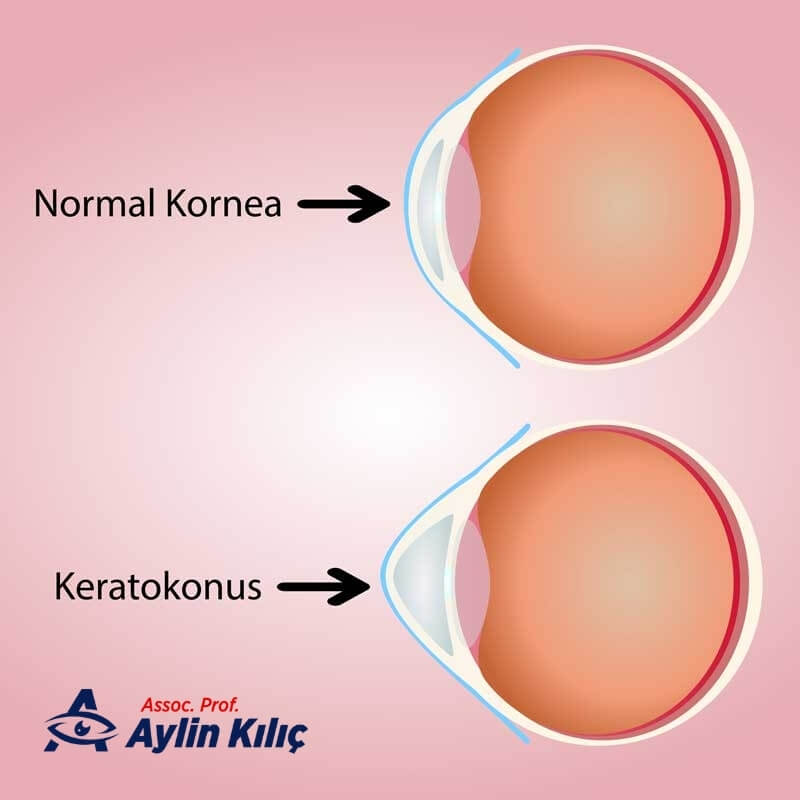Keratoconus is one of the eye disorders that directly affects the quality of life of the person and adversely affects the ability to see. Yes, this disease negatively affects vision, but does Keratoconus cause blindness? We have many patients who are in the later stages of the disease and wonder the answer to this question. So let’s look for an answer to our question.
Does Keratoconus Cause Blindness?
Before answering the question, we need to recognize this eye condition. Keratoconus is an eye condition that occurs when the cornea becomes thinner and sharper and its shape is distorted accordingly. As the shape of the cornea is distorted, the incoming rays are not refracted properly and vision begins to deteriorate. The most important point to be aware of this disease is that it is recognized late because it does not show very clear symptoms in the first stages.
As with many other eye diseases, we can define this disease as a progressive disease. In other words, if left untreated, the cornea continues to thin and sharpen over time. With the increase in deformity, vision may gradually deteriorate. Can the disease cause blindness? With special glasses and special contact lenses used in the early stages of the disease, the progression can be controlled and the person’s vision can be improved.

However, the disease may progress differently in each patient. In cases that progress rapidly and are not taken under control at an early stage, i.e. not treated, the cornea may become thinner and lose its shape. In this case, very serious vision problems arise. However, with today’s developing technology, the risk of blindness has been reduced to a negligible level. In cases where the disease progresses, treatments such as corneal transplantation are preferred, and in this way, vision problems are largely corrected.
People diagnosed with keratoconus should have regular check-ups against the risk of vision loss that may occur in the most advanced stage of the disease, even if it is small. In this way, it is possible to prevent the rapid progression of the disease in the early stage and to apply treatments that will correct vision with solutions such as corneal transplantation in the advanced stage.




